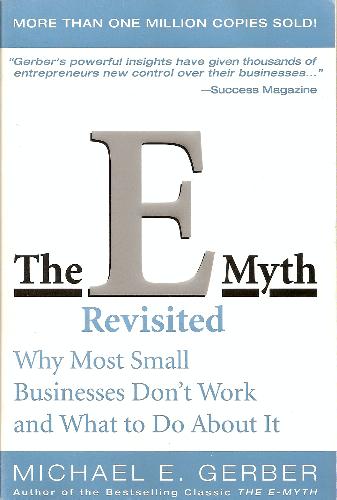- Jan 25, 2009
- 19,765
- 1,428
- Faith
- Oriental Orthodox
- Marital Status
- Private
- Politics
- US-Others
On the issue of "teen" boys, I must say that its often the case that people assume (based on our culture ) that there were teenagers/others considered such----but back in the day, there was no middle category between child and man. Once you hit 12 or 13, you were considered adult/expected to do as adults did rather than someone "in-between" (i.e. teens)/with less expected of them.Originally Posted by razzelflabben
Seems extremely unlikely that teen boys would have had time to be as profitable in business as would be necessary for them to leave their businesses for 3 years (primarily leave) and not see a loss in profit....in fact, it wasn't until the age of 13 that the boys were even considered to be adult enough to be accountable.
And as most of the disciples were in their 20's/30's, it would not have been uncommon for them to be either working trades or jobs....and with that, it also would not have been unlikely that they could have been in good standing concerning their business/having it profitable (just as with many today young and who are very successful---or, at least, able to make a living). Of course, it would have been some loss in profit since 4 of them (i.e. James, John, Andrew, Peter) left for a season while others still in the Family Business had to stay behind while they were leaving for a long time in the trade they did (even though they still came home and the trade they were involved in could be done by them on the road in certain degrees so they could survivie, such as catching fish or having money enough to rent boats on the way rather than use their own back home continually). But as others back home still had to eat/knew how to survive and they had a family business that did not just involve the disciples, there's no need to think the business was in shambles......as others back home could take up the slack/have time to fill in the gaps over 3 years time. The maximum income that could have been made if all of them were home may not have been there---but to say all the workers at home/the father of Zebedee and the hired servants would be in ruins does not seem warranted on all points.
The age of the disciples has nothing to do with whether or not someone starts out well in a business and is able to keep making it work even when they may take a break.
As it is, Age is but a number ---as there are many examples in Scripture of where even young people had godly influence over those older than they...and were highly successful in their trades. King Josiah immediately comes to my mind, for the kid was eight years old when he began influencing people toward serving the Lord ( II Chronicles 34-35/2 Chronicles 34:20 /2 Kings 22:17 )
Josiah's Reforms
1 Josiah was eight years old when he became king, and he reigned in Jerusalem thirty-one years. 2 He did what was right in the eyes of the LORD and walked in the ways of his father David, not turning aside to the right or to the left.
3 In the eighth year of his reign, while he was still young, he began to seek the God of his father David. 2 Kings 23:25
Even at his young age, he showed greater wisdom than many of the older kings that came before him because he had decided to seek the Lord and His wisdom
Same thing with David (who was a young adult around 15 to 17yrs when he was anointed 1 Samuel 16:12-14 /1 Samuel 16 and also killed Goliath at 17 1 Samuel 17/ & went into the service of the King, possibly getting married after a couple of years as well, and he was also anointed king over Judah in 1 Samuel 16:12-14/1 Samuel 16 ..and over all Israel seven years later, 2 Samuel 5:8 ---though he didn't officially become king immediately & was far better in comparision to King Saul whom he had to serve under, his exploits were LEGENDARY nonetheless in leadership, 1 Samuel 17)...and the same with Solomon, 1 Kings 1:5 /1 Chronicles 29:1-3 (in Context)1 Chronicles 29:2 1 Chronicles 29 /2 Chronicles 1:141 Josiah was eight years old when he became king, and he reigned in Jerusalem thirty-one years. 2 He did what was right in the eyes of the LORD and walked in the ways of his father David, not turning aside to the right or to the left.
3 In the eighth year of his reign, while he was still young, he began to seek the God of his father David. 2 Kings 23:25
Neither before nor after Josiah was there a king like him who turned to the LORD as he didwith all his heart and with all his soul and with all his strength, in accordance with all the Law of Moses.
2 Kings 23 (
2 Kings 23 (
1 Kings 3:6-8 (in Context) 1 Kings 3
7 "Now, O LORD my God, you have made your servant king in place of my father David. But I am only a little child and do not know how to carry out my duties.
7 "Now, O LORD my God, you have made your servant king in place of my father David. But I am only a little child and do not know how to carry out my duties.
Numbers 1/Numbers 1:2-4 (in Context) Numbers 1
The Census
....He said: 2 "Take a census of the whole Israelite community by their clans and families, listing every man by name, one by one. 3 You and Aaron are to number by their divisions all the men in Israel twenty years old or more who are able to serve in the army.
Interesting that the army was composed of males 20yrs of age/older--many of whom were married/with children (should one read the entire chapter)---and for others, which I thought were interesting:The Census
....He said: 2 "Take a census of the whole Israelite community by their clans and families, listing every man by name, one by one. 3 You and Aaron are to number by their divisions all the men in Israel twenty years old or more who are able to serve in the army.
Exodus 30:14
All who cross over, those twenty years old or more, are to give an offering to the LORD.
Exodus 30:13-15 (in Context) Exodus 30
Exodus 38:26
one beka per person, that is, half a shekel, according to the sanctuary shekel, from everyone who had crossed over to those counted, twenty years old or more, a total of 603,550 men.
Exodus 38
Numbers 14:29
In this desert your bodies will fallevery one of you twenty years old or more who was counted in the census and who has grumbled against me.
Numbers 14:28-30 Numbers 14
Numbers 26:2
"Take a census of the whole Israelite community by familiesall those twenty years old or more who are able to serve in the army of Israel."
Numbers 26
Numbers 32:11
'Because they have not followed me wholeheartedly, not one of the men twenty years old or more who came up out of Egypt will see the land I promised on oath to Abraham, Isaac and Jacob-
Numbers 32:10-12 Numbers 32
2 Kings 14/2 Kings 14:1-3/ 2 Kings 14
Amaziah King of Judah
1 In the second year of Jehoash [a] son of Jehoahaz king of Israel, Amaziah son of Joash king of Judah began to reign. 2 He was twenty-five years old when he became king, and he reigned in Jerusalem twenty-nine years. His mother's name was Jehoaddin; she was from Jerusalem. 3 He did what was right in the eyes of the LORD, but not as his father David had done.
2 Kings 18/2 Kings 18:1-3 2 Kings 18
Hezekiah King of Judah
1 In the third year of Hoshea son of Elah king of Israel, Hezekiah son of Ahaz king of Judah began to reign. 2 He was twenty-five years old when he became king, and he reigned in Jerusalem twenty-nine years.
1 Chronicles 23:23-25 / 1 Chronicles 23
1 Chronicles 23:27
According to the last instructions of David, the Levites were counted from those twenty years old or more.
1 Chronicles 23:26-28
26 the Levites no longer need to carry the tabernacle or any of the articles used in its service." 27 According to the last instructions of David, the Levites were counted from those twenty years old or more. 28 The duty of the Levites was to help Aaron's descendants in the service of the temple of the LORD : to be in charge of the courtyards, the side rooms, the purification of all sacred things and the performance of other duties at the house of God
http://www.biblegateway.com/passage/?book_id=13&chapter=27&verse=23&version=31&context=verse
All who cross over, those twenty years old or more, are to give an offering to the LORD.
Exodus 30:13-15 (in Context) Exodus 30
Exodus 38:26
one beka per person, that is, half a shekel, according to the sanctuary shekel, from everyone who had crossed over to those counted, twenty years old or more, a total of 603,550 men.
Exodus 38
Numbers 14:29
In this desert your bodies will fallevery one of you twenty years old or more who was counted in the census and who has grumbled against me.
Numbers 14:28-30 Numbers 14
Numbers 26:2
"Take a census of the whole Israelite community by familiesall those twenty years old or more who are able to serve in the army of Israel."
Numbers 26
Numbers 32:11
'Because they have not followed me wholeheartedly, not one of the men twenty years old or more who came up out of Egypt will see the land I promised on oath to Abraham, Isaac and Jacob-
Numbers 32:10-12 Numbers 32
2 Kings 14/2 Kings 14:1-3/ 2 Kings 14
Amaziah King of Judah
1 In the second year of Jehoash [a] son of Jehoahaz king of Israel, Amaziah son of Joash king of Judah began to reign. 2 He was twenty-five years old when he became king, and he reigned in Jerusalem twenty-nine years. His mother's name was Jehoaddin; she was from Jerusalem. 3 He did what was right in the eyes of the LORD, but not as his father David had done.
2 Kings 18/2 Kings 18:1-3 2 Kings 18
Hezekiah King of Judah
1 In the third year of Hoshea son of Elah king of Israel, Hezekiah son of Ahaz king of Judah began to reign. 2 He was twenty-five years old when he became king, and he reigned in Jerusalem twenty-nine years.
1 Chronicles 23:23-25 / 1 Chronicles 23
1 Chronicles 23:27
According to the last instructions of David, the Levites were counted from those twenty years old or more.
1 Chronicles 23:26-28
26 the Levites no longer need to carry the tabernacle or any of the articles used in its service." 27 According to the last instructions of David, the Levites were counted from those twenty years old or more. 28 The duty of the Levites was to help Aaron's descendants in the service of the temple of the LORD : to be in charge of the courtyards, the side rooms, the purification of all sacred things and the performance of other duties at the house of God
http://www.biblegateway.com/passage/?book_id=13&chapter=27&verse=23&version=31&context=verse
Last edited:
Upvote
0





